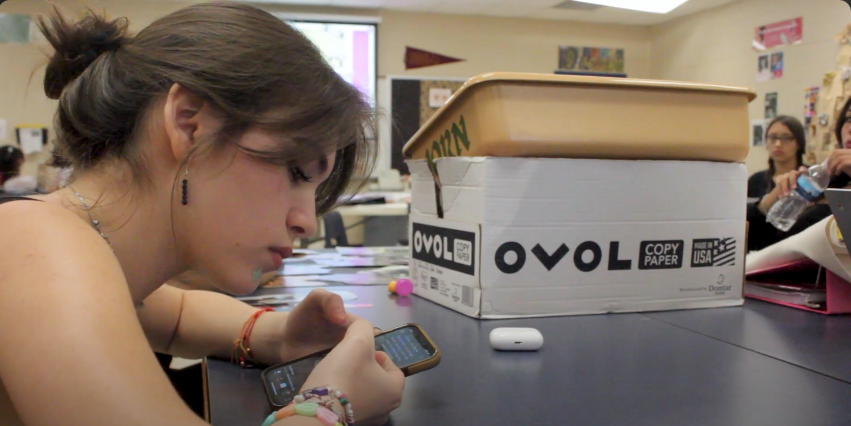
by Caitlin Blackmon | staff writer
Most days after school, senior Matthew Kimmel goes to work at the Marriot in the sports bar. However, since he is still a student, he needs a greater amount of organization than some of his peers in order to maintain a steady school and work life, while juggling all other aspects of life in between.
“I know if I’m scheduled I’m not gonna be able to go out and play basketball with my friends. I kinda have to plan my life out more than I used to before I had a job,” Kimmel said.
Keeping up with a part-time job and school may not be the life for some, but many high school and college students have jobs either because they really need money, they’re living on their own, they need to save for the future, or they simply want some extra spending money for the weekend.
“I need a job so I can start saving money towards college to be able to make any down payments,” senior Pedro Silva said.
Having a job has its benefits besides just money; one being given more responsibility and knowing how to handle that newfound responsibility well.
“It makes people a bit more responsible, money wise. Now, because I’m actually making my own income, I have to think about what I spend,” senior Cristopher Valdez said.
Having a job can also be motivation for students who want to better their lives. Some days you may feel like working hard isn’t worth it, but then you see coworkers at the retail store you work for with your part-time job as their career, and you decide maybe it really is worth it to put in the extra effort.
“It definitely makes me work harder because I understand, there’s a couple people at my job who have that job as their career,” Kimmel said. “They’re servers, and they’re in their early 20’s or 30’s, and it’s their job and they get tips, and they make a living, but it’s not comfortable. It makes me want to work harder in college and get a degree and do better.”
You don’t simply start at the top, either. If you really want something, you have to work hard for it. But if you’re determined and prove you’re worthy of a position, you will rise to the position you want.
“They [learn] how to work their way to the top. Like maybe you’ll start at a bottom position once you graduate from college, but you know you have to work yourself up to management,” Career Prep teacher Carrie Turner-Gray said.
Some find that maintaining a steady schedule is almost impossible, while others are able to get the essential things done. It mainly depends on where you work and what your school-and-activities life looks like.
“I work around 20 hours during the week, so it’s not that bad. I’m still able to make it home and to work and go to bed at a decent hour,” Silva said.
Another problem students encounter is their manager not scheduling them according to the times they’ve said they can work. Many who have jobs have come to the realization that communication is key.
“[How much you work] also depends on communicating with your employer to make sure they don’t overwork you, and if you feel overworked, to find a solution,” Silva said.
Giving up other things that are not as important to make your schedule work is sometimes necessary in order to make everything happen.
“I work every single day after school. Every day we have school, I’m at work,” Regina Maze said. “It’s like four hours a day, which isn’t that bad. Then I work every day on the weekend. I’m never home, so I guess it does affect that. I guess for school, like I said, I don’t get to participate in extracurriculars anymore.”








